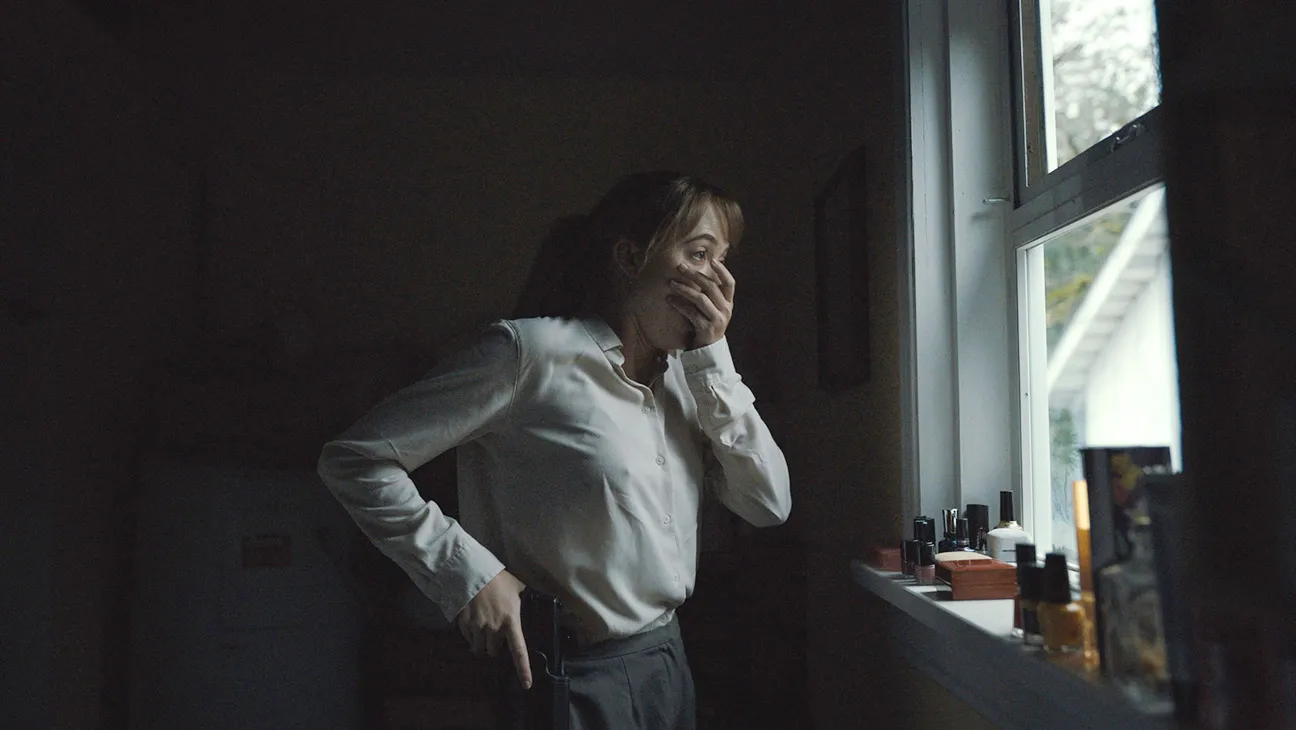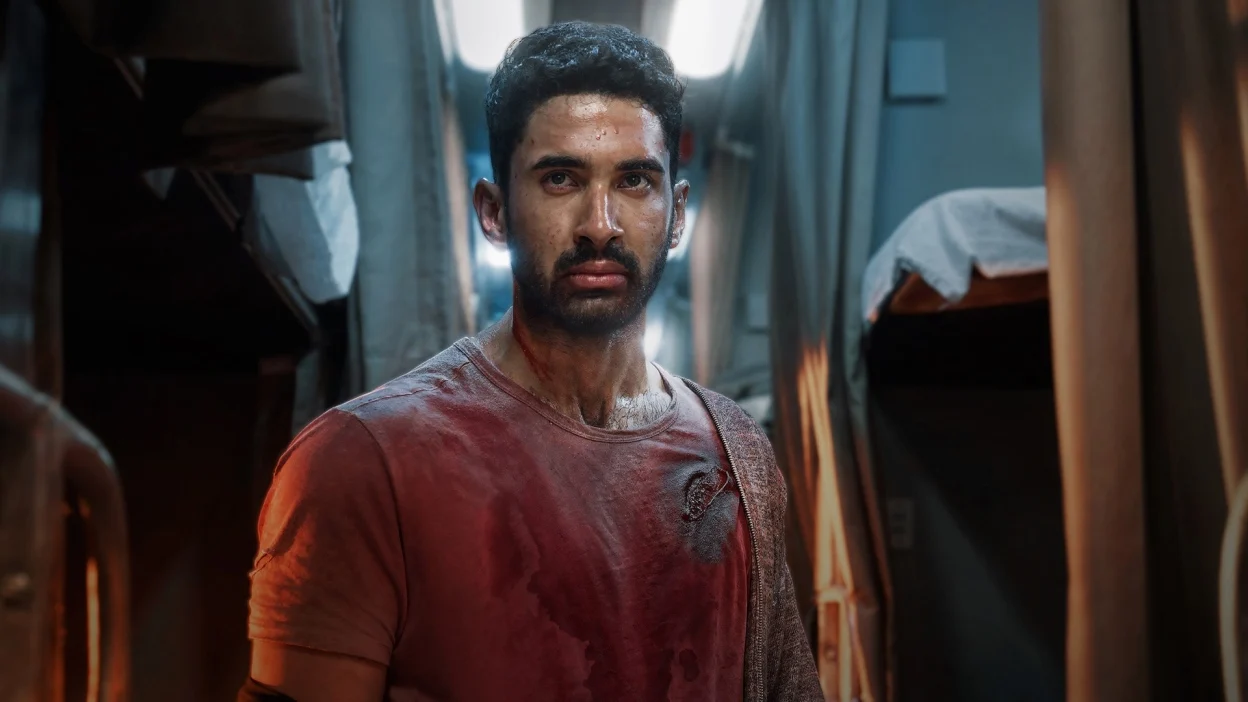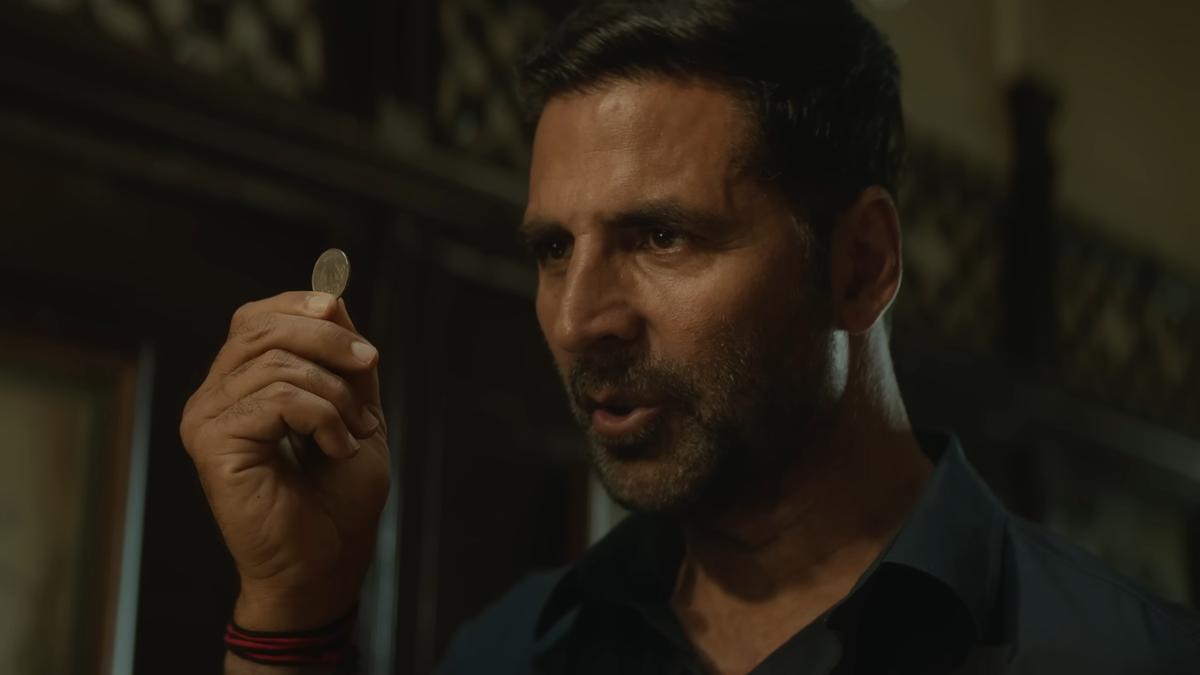Whether you’re a die hard horror fan or casual viewer, Longlegs has likely been on your radar for quite some time. Not only has it been labeled by many as the ‘scariest horror movie in recent years’ after early showings, but has also utilized memorable and clever marketing campaigns, including the sound of lead actress Maika Monroe’s actual heartbeat when viewing co-star Nicolas Cage’s villainous look for the first time. Directed by Osgood Perkins (The Blackcoats Daughter), Longlegs follows FBI Agent Lee Parker (Monroe) in pursuit of a serial killer (Cage), uncovering a series of occult clues that she must solve to end his terrifying killing spree. Cleverly blending procedural police thriller with tantalizing cult horror, Longlegs is an ominous, dread inducing flick helmed by exceptional lead performances and a unique visual style.
Maika Monroe has long been declared a queen of horror due to her work in It Follows, The Guest and others, and her performance in Longlegs certainly lives up to expectations. The role of Agent Lee Harker is no easy feat, yet Monroe tackles it with admirable nuance. The case she is working on is heinous in nature, and the further she delves, the more frightening it becomes. Constantly on the verge of unraveling, Monroe adds a layer of anxiety to the role that makes Longlegs all the more unsettling. Her tenacity to solve the case, blended with her lack of sleep and obvious fear of what lies ahead of her makes Harker an interesting character to follow – Monroe crushes it. Starring opposite as the titular serial killer Longlegs is of course Nicolas Cage – what a performance he delivers. At the stage in his career where he’s trying out all sorts of wacky characters, especially within the horror genre, Longlegs may just be his best work in the last few years. Giving his all to this strange, maniacal and downright terrifying character, underneath all that make-up, Cage transforms into something unrecognizable. Stealing the scene every time he’s on screen, whether he’s singing at the top of his voice or sweet-talking his next victim, Cage makes his presence known and proves there’s no one better suited to the role of a creepy serial killer than him. Terrific side performances are also delivered by Blair Underwood as Agent Carter and Alicia Witt as Ruth Harker, Lee’s mother.
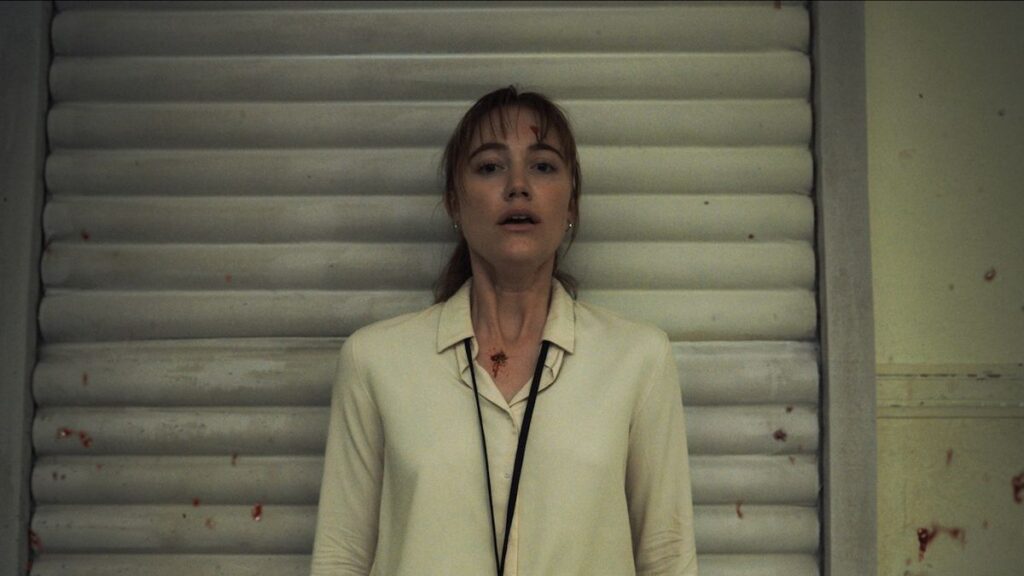
Those expecting a straight-up horror flick may be surprised to find out that Longlegs is a police procedural before anything else. Solving the case and preventing further murders is the movie’s focus, offering up a slow-burn approach with its storyline. However, this doesn’t mean to say it isn’t consistently intriguing. Slowly drip-feeding the audience information alongside the investigators successfully keeps us guessing, and luckily the mystery at hand is easy to invest in. The dialogue is consistently engaging, adding enough ambiguity to make us want to know more, but balancing that with thorough exploration into its themes and ideas so we aren’t left cold and confused once the credits run.
Longlegs’ script, written by Oz Perkins himself, dares to delve into the occult, religion and most importantly, through our lead character, how we view our own childhood and what we’re forced to forget. It’s an interesting angle and one that comes by surprise. There is also plenty of style on offer within the technical aspects, ensuring that Longlegs is a marvel even during its milder moments. Playing around with different aspect ratios, color grading, angles and empty space, the cinematography is both playful and terrifying. The original score, composed by Zilgi, compliments the tone of the movie perfectly and adds to the unsettling nature. Longlegs has a delicious sense of style that’s almost as memorable as its villain. Don’t be fooled by the slow approach, however – once the horror comes, it makes itself known.
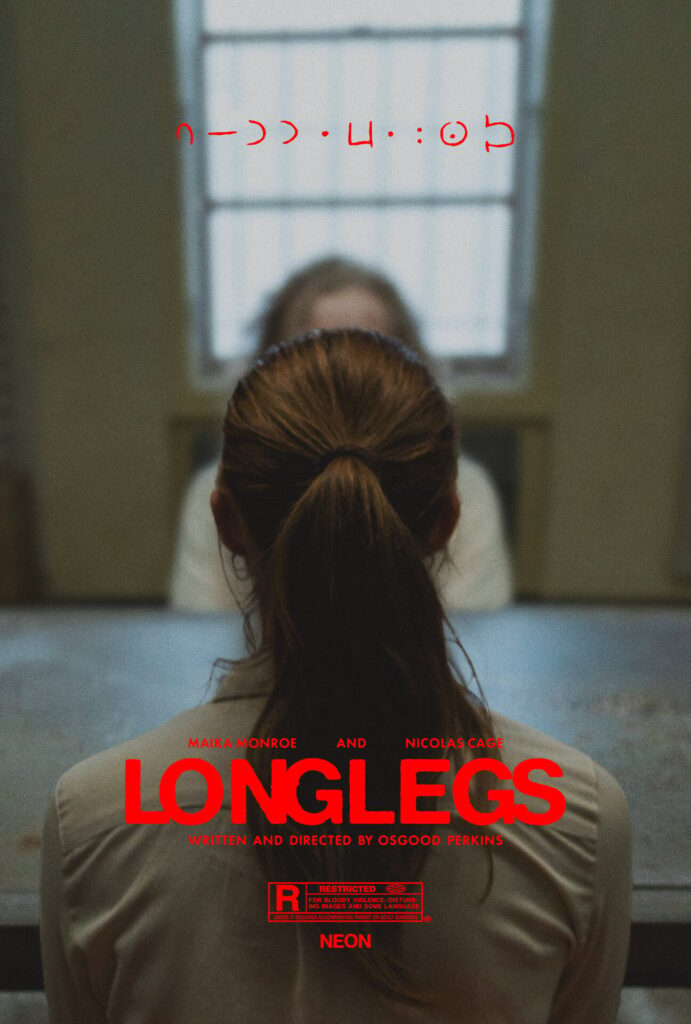
So – is Longlegs the scariest movie of the last few years? Of course, fear is subjective, but Longlegs uses methods of terror that stick with you long after viewing. It’s undeniably fallen victim to hype and hyperbole, but despite not quite being as frightening as many have hinted, it’s a very disturbing affair. What makes Longlegs so scary is that every element is out to get you. Perkins’ main goal is to unsettle us, which is apparent from the first frame to the last. It has a looming sense of dread that leaves your chest pounding from its opening scene, and it only builds on this as the run-time progresses, ensuring you’re riddled with fear and anticipation once the third act arrives. The strong tone and atmosphere created is almost tangible enough to be felt, and it’s the feeling of dread and uneasiness that’s making movie-goers claim Longlegs as the scariest piece of cinema we’ve seen for a while. The cinematography aids this feeling, as its focus on vast empty spaces, long corridors and bleak forests forces us to look into the darkness and see what we can find. Some shots linger for an uncomfortably long time, whereas others cut away quickly to something vile and sinister to take us by surprise. Longlegs is also rife with spooky imagery, from gut-wrenching crime scene photos, snakes and creepy dolls to the look of serial killer Longlegs himself. Cleverly not showing us his full appearance in all its glory right away, the movie knows just how to keep us on edge and make us fear this terrifying being for the entire duration. There are a couple of regular horror movie methods, including the infamous jump scare, but they are thankfully used sparingly and managed to be effective. It may not deserve its ‘scariest film ever’ label, but it does take its horror to new, exciting levels.
Osgood Perkins is a seasoned horror director, but his storylines occasionally miss the depth needed to make an impact. Luckily, Longlegs ends this expectation, offering plenty to chew on within the script to aid his knack for visual storytelling and harrowing horror. With memorably chilling performances from Nicolas Cage and Maika Monroe, genuine methods of terror that stay with you long after viewing and unique, mesmerizing visuals, Longlegs is a triumph that deserves to be seen on the big screen. It has a handful of slow moments and perhaps some areas of the script could use further development, but Perkins still manages to turn in his career-best work to date. It often feels reminiscent of the likes of The Silence of the Lambs and Se7en, crime dramas that offer up something more than just catching a killer, despite putting that at the forefront.
